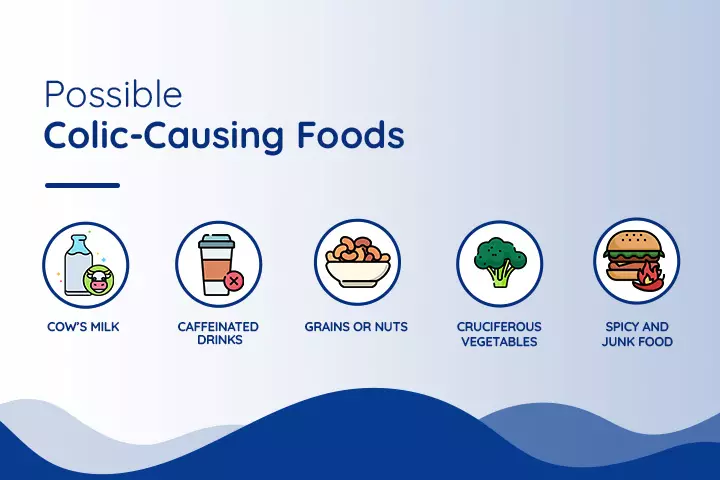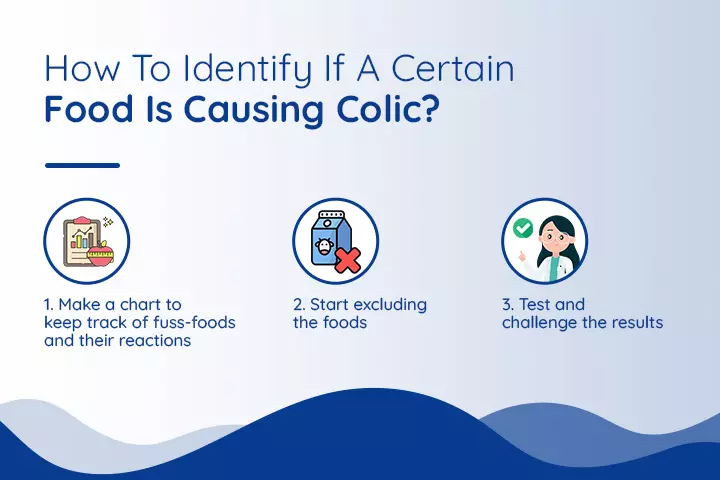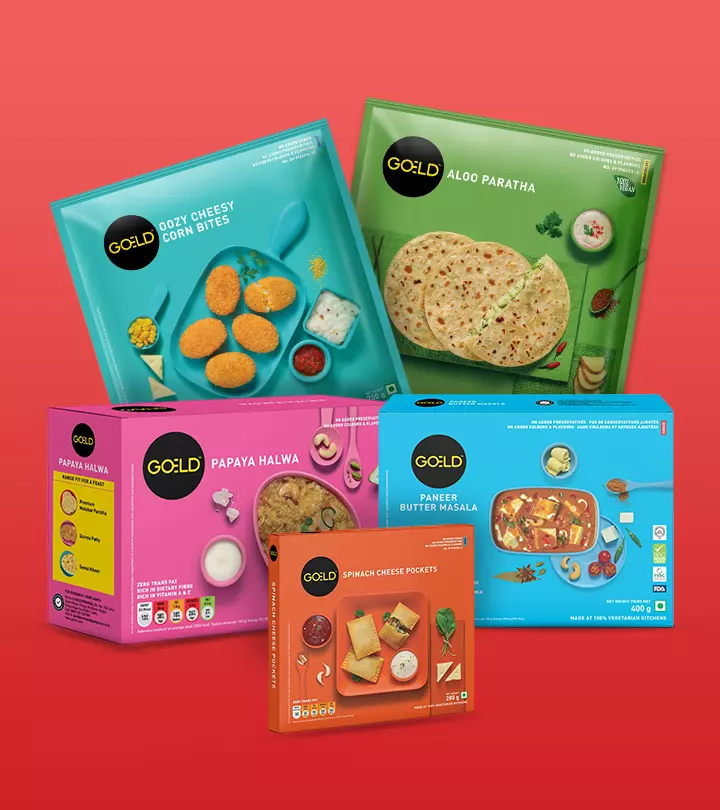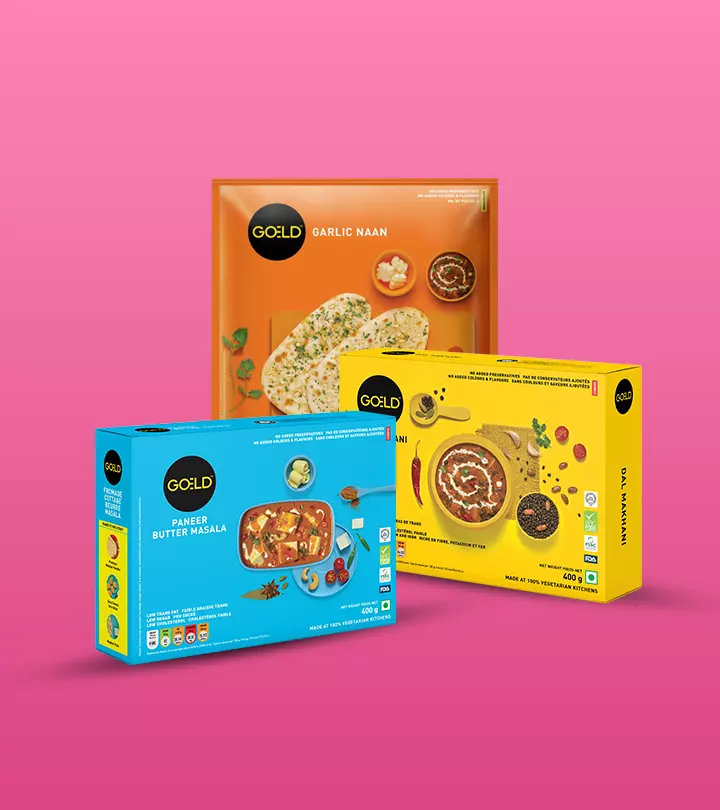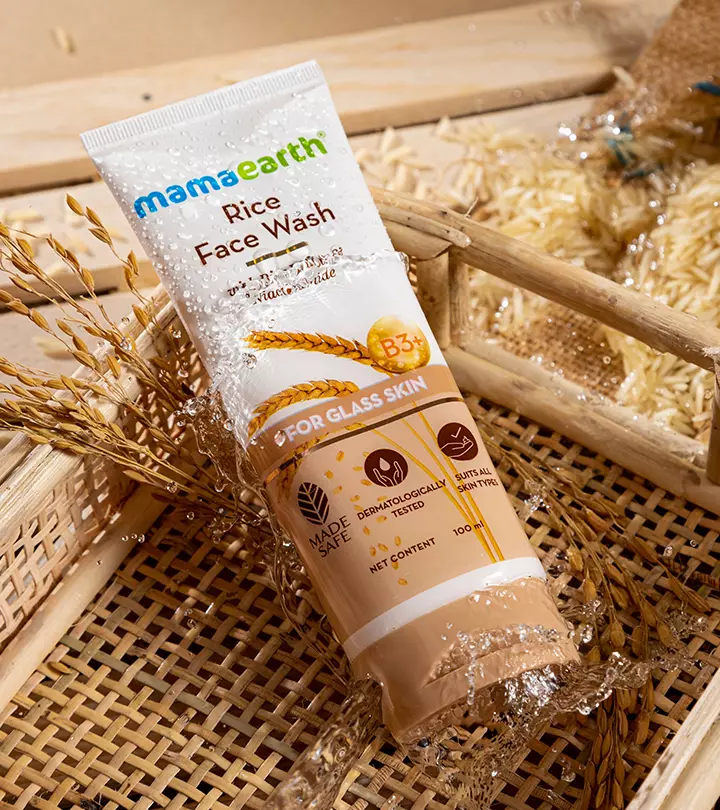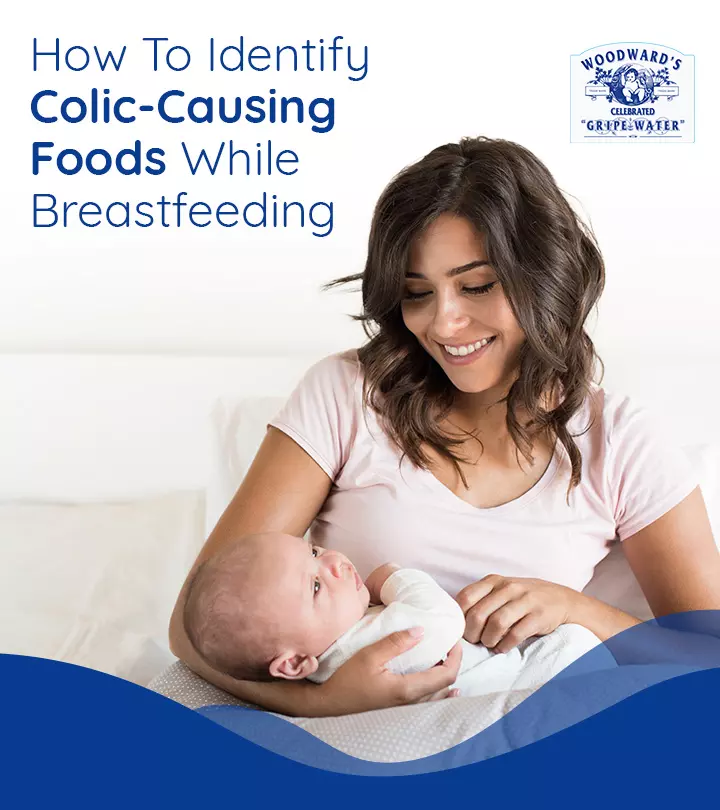

Image: Shutterstock
If a baby is frantically crying, there could be many possible factors causing it. Some parents feel helpless as they cannot pinpoint the reason behind those crying bouts. One of the reasons could be colic, a common issue among babies. Colicky babies tend to show symptoms that include pulling their legs towards the tummy, crying uncontrollably, tense body, and intense fussy behavior. One of the factors for this could be the mother’s food choices and general diet. Since breast milk is the primary source of nutrition for infants or newborns, mothers should carefully keep track of foods that should be consumed or avoided as sometimes mother’s food allergies can affect the baby’s milk digestion process. It will help them identify the colic-causing foods and avoid them to help ease the baby’s suffering.
Possible Colic-Causing Foods
Cited as one of the primary causes of colic in babies, dairy products or cow milk consumption by the lactating mother in some cases may induce allergies in babies (1). Due to its high protein content, it can cause digestive issues in babies. Therefore, if nothing else is working,a mother can try and avoid dairy products and see if the baby’s colic condition is resolved.
2. Caffeinated Drinks
Whether it’s your daily dose of hot coffee or aerated drinks containing caffeine, these drinks cause gas and bloating. Since caffeine is a stimulant, it may make babies jittery, restless, and sometimes constipated. It may end up overstimulating, which can be one of the reasons why some babies have trouble falling asleep.
3. Grains Or Nuts
Some foods, like wheat, soy, kidney beans, and peanuts, may act as allergens if consumed by the nursing mother and cause discomfort to the baby. Though nuts are considered a vital source of fat and protein, their consumption may cause stomach problems in newborns in some cases.
4. Cruciferous Vegetables
This food category is notorious for causing intestinal gas and may cause colic among breastfeeding babies. Vegetables like cabbages, capsicum, onions, cauliflower, broccoli, or Brussels sprouts have a large fructan content that can be hard to digest and cause bloating or gas, leading to colicky behavior. If these veggies are the cause, doctors recommend switching to calcium and vitamin-rich foods like green leafy vegetables.
5. Spicy And Junk Food
Spicy or junk food is known to cause discomfort if consumed in large amounts by the nursing mother. Breast milk may develop a pungent taste if garlicky or strong flavors are consumed. It may cause gastric issues in babies leading to colic or refusal to feed due to the taste. Also, it can be harsh on the baby’s developing stomach.
How To Identify If A Certain Food Is Causing Colic?
Before assuming or making changes to one’s diet, it is always recommended to consult a medical practitioner or dietician, who can give advice or suggestions for a postnatal diet. This will keep the breastfeeding mother healthy and ensure that the baby remains healthy and colic-free.
1. Make a chart to keep track of fuss-foods and their reactions
List the primary foods in the nursing mother’s diet that fall into colic-causing foods. For example, dairy products are an infamous factor for causing colic. Highlight or keep track of the baby’s symptoms like crying, colicky episodes, diarrhea or constipation, excessive gas formation, bloating, sleep problems, etc. Cow’s milk is the most common culprit in the colic-causing foods list.
2. Start excluding the foods
After consulting the doctor:
- Single out the food items from your diet and stop their consumption for a few days.
- Check or observe the signs and symptoms of colic.
- If they are reducing or staying the same, remove the food entirely from your diet, and if not, move on by identifying another colic-causing food that may be the culprit.
3. Test and challenge the results
If colic’s symptoms reduce after eliminating the colic-causing food, talk to the doctor and try to reintroduce the food after a while. If the baby shows no signs of colic, that means it worked, but the baby’s symptoms may reappear, signaling that the food should be completely cut off from the diet chart. This exercise helps keep mothers objective and alert to their baby’s health cues or reactions to certain foods indirectly. If removing that food deprives the mother and the baby of important nutrients, doctors can always suggest healthy alternatives and solve the problem of intolerance and colic.
Some mothers keep Woodward’s Gripe Water to help their seven months or older babies cope with digestive issues caused by colic. It is an ayurvedic formulation and contains time-tested ingredients like Dill oil and Sarjikakshara, which help digestion and acidity. This mild non-alcoholic antacid for babies helps relieve pain by bursting the air-bubble formation in the babies’ stomachs. Even though there is no cure for colic, it can protect the baby from infections and help the baby calm down. Quite effective during the teething period, Woodward’s Gripe Water also helps make weaning easier and is highly effective during the teething period.
There may be many possible causes for the baby’s fuss, so consult your pediatrician every step to check if your feeding technique is the problem or if some other factor is the culprit. Also, focus on potential causes of discomfort that are not food related. Some babies may be hypersensitive to some nutrients, while some are affected by an overdose of certain colic-causing foods. Usually, breastfeeding mothers are advised not to overdose on a single food and follow a balanced diet as recommended by the doctor.
Community Experiences
Join the conversation and become a part of our nurturing community! Share your stories, experiences, and insights to connect with fellow parents.

